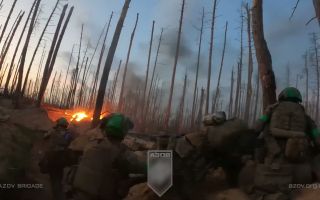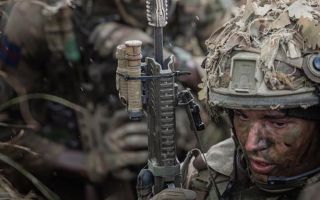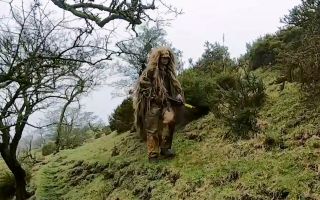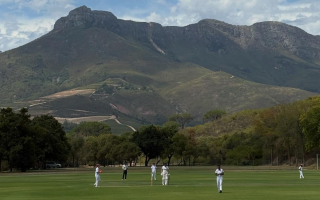Army chief: No place for sexual exploitation, as inquiry finds Brit soldiers in Kenya broke ban
The head of the Army has said there is "absolutely no place for sexual exploitation and abuse" in the British Army, after a Service Inquiry found some soldiers stationed in Kenya are continuing to pay for sex despite a 2022 ban.
Soldiers at the British Army Training Unit Kenya (Batuk) engaged in transactional sex at a level between "low and moderate", the inquiry said.
Chief of the General Staff General Sir Roly Walker said such behaviour "should not be happening at all" and was "at complete odds with what it means to be a British soldier".
The inquiry was commissioned in October 2024 following an ITV investigation into the behaviour of British soldiers in Kenya.
The documentary focused on an alleged cover-up of the 2012 death of local woman Agnes Wanjiru, whose body was found dumped in a septic tank near a hotel where she had been seen with soldiers on the night she disappeared.
The documentary also examined how, following decades of concerns surrounding the base, some soldiers continued to abuse local women, including allegations of rape and sexual assault on underage girls.
What the inquiry examined – and what it found
The inquiry examined conduct at Batuk over a two-year period, from the introduction of the zero-tolerance policy on sexual exploitation in July 2022 to the end of 2024.
The report concluded that transactional sex persisted at what it described as a low to moderate level, despite clear rules, repeated briefings, and active enforcement efforts by commanders.
The Ministry of Defence's policy – known as JSP 769 – bans sexual activity in exchange for money, goods or services overseas and carries a presumption of discharge if proven.
The inquiry found no evidence that commanders condoned the behaviour, and most personnel deployed to Kenya followed the rules.
Out of 7,666 soldiers who served at Batuk during the period, 35 incidents of suspected transactional sex were recorded.
Twenty-six happened before the policy became fully enforceable in November 2022, and nine happened after.
The panel described those post-ban breaches as the result of deliberate disobedience by a small minority, rather than confusion about the rules. Most involved junior ranks, often in small off-duty groups.
What will be done?
Gen Sir Roly said the Army was "listening and learning" from the findings and would implement the report's recommendations in full to make Kenyan women safer.
The service chief said he will be increasing the Army's ability to discharge people for engaging in transactional sex.
He will also be implementing a new and specific training programme, placing an obligation on everyone in the Army to prevent sexual exploitation and abuse.
"We are fully committed to preventing sexual exploitation in any form and will continue to listen, step up, and take action when we need to, including working with the other services to learn lessons and share best practice across defence," Gen Walker said.
Curfew, sharkwatch and tighter checks
Witnesses told the inquiry that Batuk's location – near the town of Nanyuki – meant opportunities for transactional sex were readily available.
British soldiers are actively targeted, making breaches straightforward for those inclined to offend.
Alcohol use and peer influence were cited as enabling factors, with some personnel believing the chances of being caught were low.
The report noted the tightening of preventative measures over time – including curfew, out-of-bounds locations, booking-in and out, and "Sharkwatch" patrols on nights out.
Sharkwatch involves junior personnel being watched by a non-commissioned officer of the rank of sergeant or above when they leave the base for nights out.
While the inquiry found that soldiers generally understood the policy, some struggled to connect it with broader issues such as safeguarding and the Army's reputation.
Local sentiment
Batuk is based near the town of Nanyuki, about 200km north of Nairobi, and trains thousands of British troops each year.
Kenyan MPs are also examining broader claims, from injuries tied to troops to allegations that some soldiers fathered and later abandoned children.
In June this year, a soldier was sent back to the UK after being accused of rape.
The Service Inquiry said it had spoken to many local residents and found "the vast majority" were happy with the presence of the Batuk camp.









